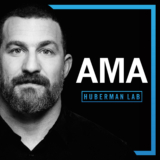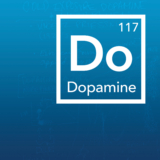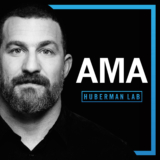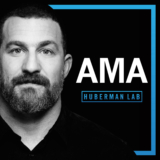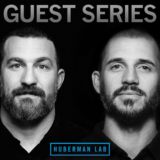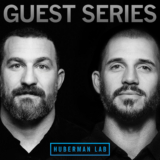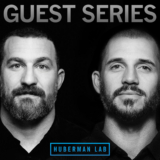In this episode, I discuss what psilocybin is (chemically) and how it works at the cellular and neural circuit level to trigger neuroplasticity, which is our ...
In this episode, my guest is Noam Sobel, PhD, professor of neurobiology in the department of brain sciences at the Weizmann Institute of Science. Dr. Sobel ...
Welcome to a preview of the sixth Ask Me Anything (AMA) episode, part of the Huberman Lab Premium subscription. The Huberman Lab Premium subscription was ...
In this episode, I explore the science of mental visualization and its application for learning motor and cognitive skills. I discuss neuroplasticity-based ...
In this episode, my guest is Matthew MacDougall, MD, the head neurosurgeon at Neuralink. Dr. MacDougall trained at the University of California, San Diego and ...
In this episode, I explain the biology of hair, hair growth, why hair growth slows and what causes hair to stop growing and/or “fall out.” I discuss the ...
In this episode, my guest is Elissa Epel, Ph.D., professor and vice chair of the department of psychiatry at the University of California San Francisco (UCSF) ...
In this episode, I explain how dopamine dynamics — meaning changes and interactions between our baseline and peak levels of dopamine drive our cravings and ...
Welcome to a preview of the fifth Ask Me Anything (AMA) episode, part of the Huberman Lab Premium subscription. The Huberman Lab Premium subscription was ...
In this episode, my guest is Peter Attia, M.D. He completed his medical and advanced training at Stanford University School of Medicine, Johns Hopkins School ...
In this episode, my guest is Satchin Panda, PhD, professor and the director of the Regulatory Biology Laboratories at the Salk Institute for Biological ...
In this episode, I discuss our body’s most vital and essential nutrient—water. I explain the structure of water and how it is used by the cells and tissues of ...
In this episode, my guest is Oded Rechavi, Ph.D., professor of neurobiology at Tel Aviv University and expert in how genes are inherited, how experiences shape ...
Welcome to a preview of the fourth Ask Me Anything (AMA) episode, part of the Huberman Lab Premium subscription. The Huberman Lab Premium subscription was ...
In this episode 6 of a 6-part series on fitness, exercise and performance with Andy Galpin, PhD, professor of kinesiology at California State University, ...
In this episode, I explain the biology of breathing (respiration), how it delivers oxygen and carbon dioxide to the cells and tissues of the body and how is ...
In this episode 5 of a 6-part special series on fitness, exercise and performance with Andy Galpin, PhD, professor of kinesiology at California State ...
My guest this episode is Gina Poe, PhD, a professor in the department of integrative biology & physiology at the University of California, Los Angeles ...
In episode 4 of a 6-part series, Andy Galpin, PhD, explains how to design an effective training program for fitness, health and longevity through a 10-step ...
In this episode, I discuss the causes and treatments of different types of headaches, including tension headaches, migraines, sinus and cluster headaches, as ...
- « Previous Page
- 1
- …
- 11
- 12
- 13
- 14
- 15
- …
- 19
- Next Page »


